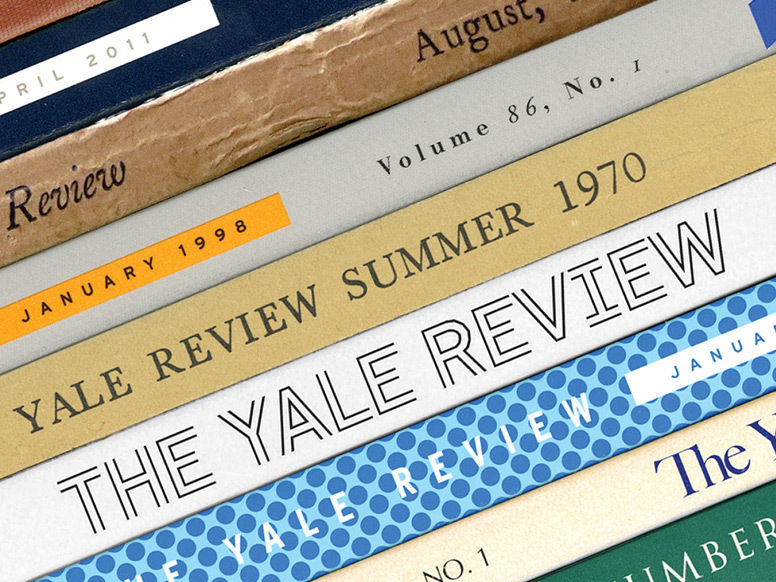EarlY one morning words were missing. Before that, words were not. Facts were, faces were. In a good story, Aristotle tells us, everything that happens is pushed by something else. One day someone noticed there were stars but no words, why? I’ve asked a lot of people, I think it is a good question. Three old women were bending in the fields. What use is it to question us? They said. Well, it shortly became clear that they knew everything there is to know about the snowy fields and the blue- green shoots and the plant called “audacity” that poets mistake for violets. I began to copy out everything that was said. The marks construct an instant of nature gradually, without the boredom of a story. I emphasize this. I will do anything to avoid boredom. It is the task of a lifetime. You can never know enough, never work enough, never use the infinitives and participles oddly enough, never impede the movement harshly enough, never leave the mind quickly enough.
In fifty-three fascicles I copied out everything that was said, things vast distances apart. I read the fascicles each day at the same time, until yesterday men came and took up the fascicles. Put them in a crate. Locked it. Then together we viewed the landscape. Their instructions were clear, I am to imitate a mirror like that of water (but water is not a mirror and it is dangerous to think so). In fact I was the whole time waiting for them to leave so I could begin filling in the parts I missed. So I am left with three fascicles (which I hid). I have to be careful what I set down. Aristotle talks about probability and necessity, but what good is a marvel, what good is a story that does not contain poison dragons? Well, you can never work enough.
Short Talk on Walking Backwards
My mother forbad us to walk backwards. That is how the dead walk, she would say. Where did she get this idea? Perhaps from a bad translation. The dead, after all, do not walk backwards but they do walk behind us. They have no lungs and cannot call out but would love for us to turn around. They are victims of love, many of them.
Short Talk on Le Bonheur d’être bien aimée
Day after day I think of you as soon as I wake up. Someone has put cries of birds on the air like jewels.
SHORT TALK ON RECTIFICATION
Kafka liked to have his watch an hour and a half fast. Felice kept setting it right. Nonetheless, each of us loves the other as he is, he wrote in his diary along with some remarks about her gold teeth, which had for him a really hellish luster in 1912. And for five years they almost married. He made a list of arguments for and against it, including inability to bear the assault of his own life (for) and the sight of the nightshirts laid out on his parents’ beds at 10:30 (against). Hemorrhage saved him. When advised not to speak by doctors in the sanitarium, he left glass sentences all over the floor. Felice, says one of them, had too much nakedness left in her. Healthy teeth? Also horrible in their way.
SHORT TALK ON VAN GOGH
The reason I drink is to understand the yellow sky, the great yellow sky, said Van Gogh. When he looked at the world he saw the nails that attach colors to things and he saw that the nails were in pain.
SHORT TALK ON SLEEP STONES
Camille Claudel lived the last thirty years of her life in an asylum wondering why, writing letters to her brother the poet, who had signed the papers. Come visit me, she says. Remember I am living here with madwomen, days are long. She did not smoke or stroll. She refused to sculpt. Although they gave her sleep stones—marble and granite and porphyry—she broke them, then collected the pieces and buried these outside the walls at night. Night was when her hands grew huger and huger, until in the photograph they are like two parts of someone else loaded onto her knees.
Short Talk on Waterproofing
Franz Kafka was Jewish. He had a sister, Ott!a, Jewish. Ottla married a jurist, Josef David, not Jewish. When the Nuremberg Laws were introduced to Bohemia-Moravia in 1942, quiet Ottla suggested to Josef David that they divorce. He at first refused. She spoke about night shapes and property and their two daughters and a rational approach. She did not mention, because she did not yet know the word, Auschwitz, where she would die in October 1943. After putting the apartment in order she packed a rucksack and was given a good shoeshine by Josef David. He applied a coat of grease. Now they are waterproof, he said.
